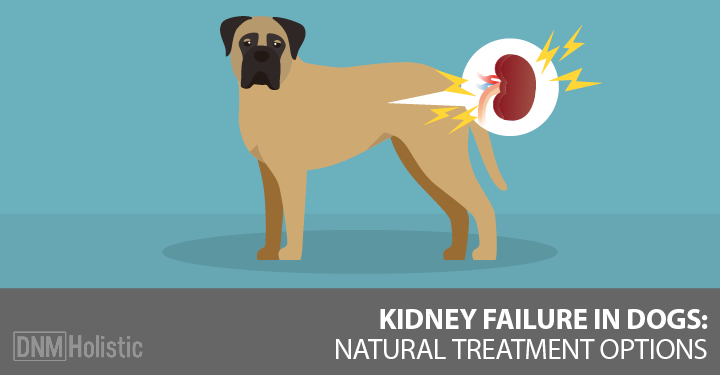Handy Tips To Selecting Dogs Supplements For Joints
Turmeric (Curcumin), A Natural Turmeric-Based Product, Can Help With The Joint Health Of Dogs As Well As Cats.Turmeric and its active ingredient curcumin have been proven to improve joint health for pets and felines. What can turmeric do to joint pain in pets:
Anti-inflammatory properties
Reduce Inflammation
Curcumin, turmeric's active component, is a powerful anti-inflammatory. It inhibits the enzymes and molecules which cause inflammation.
Curcumin is a powerful anti-inflammatory that helps reduce joint pain and inflammation. It also helps with other joint conditions like arthritis.
Antioxidant Effects
Oxidative stress reduction
Curcumin also has an effective antioxidant effect. It neutralizes free-radicals which could cause cellular damage or inflammation.
Benefits: Reducing oxidative stress can help protect joint tissues from damage possibly reducing the development of joint disorders and ensuring joint health.
Pain Relief
Natural Painkiller:
Curcumin reduces pain perception through modulating pathways that cause pain.
Benefits: Natural pain relief for pets could help them be more active.
Cartilage Protection
Cartilage Breakdown Prevention:
Curcumin is a drug that blocks enzymes that cause cartilage to break down.
Benefits: Preserving cartilage from deterioration is essential for ensuring joint function and strength particularly for pets suffering from joint issues.
Immune System Modulation
Immune Balance:
Curcumin is an anti-inflammatory ingredient in nature that helps balance the immune system.
Benefits of a healthy immune response: It can reduce inflammation and help maintain joint health.
Joint Health: Benefits to the Overall Health
Turmeric improves mobility for pets suffering from joint problems by reducing the discomfort and inflammation. It also helps protect cartilage.
Pets with less pain or have more mobility tend to become more active. They also have higher quality of life.
Use and factors
Dosage and Administration: The appropriate dose of curcumin or turmeric for pets is determined by the size, weight and specific health needs. The instructions on the product's label or recommended by the veterinarian should be adhered to. Curcumin is usually given in combination with black pepper extract (piperine) to enhance the absorption of curcumin.
Turmeric supplements for pets are available in capsules (or powders) as well as chewables (or chewables) as well as various other varieties. Selecting a pet-specific, high-quality product can ensure the safety and effectiveness.
Side Effects: While generally safe, large doses of turmeric could cause gastrointestinal distress in some pets. Beginning with a small dose and gradually increasing the dosage to reduce the negative effects. It is also important to watch your pet for adverse reactions, such as vomiting or diarrhea.
Summary
Turmeric and, in particular, its active ingredient curcumin, offers several benefits for joint health for dogs and cats. Turmeric is a natural anti-inflammatory ingredient as well as antioxidants and pain relief. These properties decrease inflammation and pain in joints, shield cartilage from damage, and enhance the overall functioning of joints. Regular supplements with turmeric can help pets suffering from joint pain or inflammation to improve their mobility. View the most popular petz park for website examples including ear infections in dogs, pet supplements for pets with muscle atrophy, pet supplements for pets with fleas and ticks, pet supplements for pets with fear of being alone, pet supplements for pets with storm anxiety, pet supplements for pets with medical conditions, pet supplements for pets with liver disease, pet supplements for pets with fireworks phobia and more.

Quercetin Is Effective In Treating Skin Allergies Of Both Cats And Dogs.
Quercetin is a flavonoid, which is found in both vegetables and fruits It has been proven to be beneficial in the management of allergies to the skin of pets and cats. That's how quercetin functions to treat skin allergies.
Anti-inflammatory Properties
Reduction of inflammation:
Function: Quercetin has strong anti-inflammatory properties that block the production and release of pro-inflammatory cytokines and histamines.
Benefits In reducing inflammation, quercetin can reduce redness, swelling, and discomfort that are associated with skin allergies, leading to improved overall skin health.
Antihistamine Effects
Natural Antihistamine:
Quercetin acts by preventing the release of histamines in mast cells. Histamines, that cause itching or other allergic symptoms are chemical compounds.
Benefits As an natural antihistamine quercetin may help to reduce itching and other allergic reactions. It can provide relief for pets suffering from skin allergies.
Antioxidant Activity
Oxidative Stress:
Function: Quercetin has a strong antioxidant effect that neutralizes free radicals, and helps reduce oxidative stresses.
Benefits: Reduced oxidative stress helps protect skin cells, encourage healing and maintain skin health.
Immune System Modulation
Balanced Immune Response
The function: Quercetin modifies the immune system, which provides a balanced and effective response to allergens.
Benefits: A balanced immune response can prevent excessive reactions to allergens. This decreases the severity and frequency allergic manifestations.
Enhancement Skin Barrier Function
Strengthening Skin Barrier:
Function: Quercetin is essential in maintaining healthy skin barriers by helping to produce ceramides.
Benefits: A thicker skin barrier helps protect against pathogens and allergens in the environment and reduces the chance of developing allergic reactions and infections.
Allergy Symptom Management
Symptom Relief:
The function: Quercetin reduces inflammation by inhibiting the enzymes that cause inflammation, like Lipoxygenase.
Benefits: This leads to a reduction in symptoms such as itching redness, and swelling, providing comfort and relief for pets.
Use and Considerations
Dosage and Administration: The proper dosage of quercetin depends on the size of the pet, weight, and health issues. It's important to follow the prescriptions of your veterinarian or follow the instructions on the label. Quercetin when paired with Bromelain, increases the absorption of Quercetin.
Formulations: Quercetin supplements for pets are available in a variety of forms, including capsules, powders, tablets, and tablets. To ensure safety and effectiveness you must select the highest quality pet product available for your pet.
Quercetin can cause adverse reactions. It is generally safe but high doses can cause stomach upset in certain pets. Beginning with a lower dosage then gradually increasing the dosage could help minimize adverse effects. It is important to check for reactions that could cause adverse effects, like nausea or diarrhea.
Conclusion
Quercetin has been found to be an effective supplement for the treatment of skin allergies. Its antioxidant properties and antihistamine effects reduce inflammation, itching and oxidative stresses, while protecting the skin barrier by regulating immune responses and improving the quality of life of animals with skin allergies. Regular use of quercetin can offer significant relief from allergic symptoms and enhance overall skin health, enhancing the overall quality of life for animals suffering from skin allergies. See the recommended read what he said about natural dog company for site examples including pet urinary tract supplements, pet supplements for pets with fear of other animals, pet lactation supplements, pet coat supplements, pet supplements for pets with skin allergies, pet supplements for pets with allergies, pet supplements for pets with skin rashes, pet supplements for pets with elbow dysplasia and more.

Apple Cider Vinegar Helps With Yeast Infections For Cats And Dogs.
Apple cider vinegar (ACV) is sometimes recommended as a natural treatment for yeast illnesses in cats and dogs. ACV is acidic and could produce side effects. While some anecdotal and research-based evidence supports its benefits, you should take it under the supervision of a veterinarian due to its possible adverse side effects and acidic nature. Here's how ACV is thought to help with yeast infections:
Antifungal Properties
Acidic Environment
Function: ACV is acidic, with a pH typically between 2.5 and 3. The environment is not ideal for yeast growth.
Benefits: Applying ACV or adding dilute ACV to the bathwater of your pet could lessen the yeast overgrowth on the ear and skin.
Skin pH Regulation
Balancing Skin pH:
The function: ACV is believed to help balance the skin's pH levels, which may help support the skin's barrier to keep it healthy and stop yeast growth.
Benefits: Keeping a healthy pH balance on the skin may help to in preventing yeast infections and boost overall health of the skin.
Anti-inflammatory effects
The reduction of inflammation
ACV's anti-inflammatory properties, mild and gentle, are the main reason for its use.
Benefits Reduce inflammation and ease symptoms like redness, itching and discomfort caused by yeast infections.
Support for Digestive Health
Internal Use
Function: When inhaled (in very small amounts and extremely dilute), ACV is thought to improve digestion and balance gut flora.
Benefits: A healthy gut environment can indirectly decrease yeast overgrowth by supporting overall immune function and microbial balance.
Use and Considerations
Topical Application - dilute ACV (typically 1 part of ACV for every 2 parts water) with water and use as a rinse, spray or ointment to the affected areas. It is best to avoid applying it directly to open wounds or skin that is sensitive.
Consult your physician prior to using ACV internally. ACV is best administered in very small doses and diluted (1 1 teaspoon to 1 tablespoon for every cup of liquid) to prevent any stomach upset.
Monitoring: Look for signs of irritation or allergic reactions when using ACV topically. Discontinue use if any adverse reactions occur.
Consultation with Veterinarian Consultation with a veterinarian before using ACV for yeast infections in pets. They can assist you with the right dilution methods, application techniques, and potential risks to your pet.
The conclusion of the article is:
Apple cider has some benefits in managing yeast infections in dogs and cats However, the consumption of this vinegar must be carried out under the supervision of your veterinarian and with caution. ACV is acidic, and can create an environment that does not encourage yeast growth. It could also possess mild antiinflammatory effects. But, dilution is key and also careful use to keep from causing irritation. Veterinarian guidance assures that ACV is safe and effectively as part of a holistic treatment program for yeast infections in pets. Have a look at the top rated petz park info for website recommendations including pet joint supplements, pet supplements for pets with fear of muzzles, urinary infection in cats, pet supplements for pets with noise sensitivity, pet msm supplements, urinary infection in dogs, pet supplements for pets with noise sensitivity, pet weight loss supplements and more.
